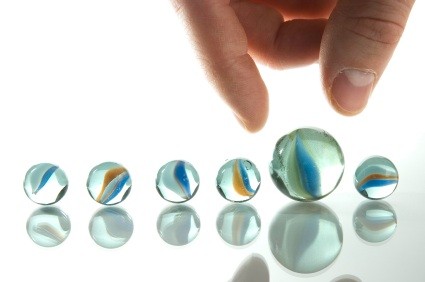Change: The Paradox of Fear and Attraction Eight Thoughts for Success at Lifestyle Improvement.

“Change”is such a powerful and loaded term. The very word brings out any number of wildly disparate responses: fear, anticipation, longing, uncertainty, attraction, loss and excitement. Change in attitude, and belief yielding change in behavior, or more specifically health and wellness behavior is what we’re after. Yet if the very idea of change is at all scary, isn’t that just one more reasonnotto change?
“Lifestyle improvement” was always the term of the wellness movement until more recently when “lifestyle change” became the buzzword. The cynic could counter with “Well, I’m smoking a lot more now, that’s “change”!”
Personally I’d love to get back to the original term, but at the heart of any improvement, is, inevitably change.
Taking on the subject of change is complex with endless possibilities to explore and many great theories about it. I’ve even got some of my own. We’ll look at what we can learn from the broader topic of change and the work of theorists like Albert Bandura and James Prochaska on later posts.
Here’s some of my thoughts, gleaned from many years of helping people make the changes in their lives that they really wanted to see.
1. Change means loss. Even positive changes mean giving something up. “My new smartphone has endless features, but I miss the ease of handling that my old phone had.” “I love the new town I live in, but I wish I was still in Wellville.” “I’m so glad I quit smoking, but you know, there’s nothing like a good cigar!” Sometimes change seems to weigh out more negatively than positive right from the start. It’s OK to acknowledge our losses, and to even grieve them. When we don’t fully grieve, our attachment to what was persists and robs us of our full presence in our new reality.
2. Change reminds us that nothing lasts forever.The transience of life is perhaps the only thing we can all be absolutely sure of. Our attachment to what was is the primary source of our suffering according to one of the basic tenets of Buddhism. Letting go of attachment
requires real perspective on what is truly important to us.
“Everything flows and nothing abides, everything gives way and nothing stays fixed.”Heraclitus (c.540-c.475BC)
3. Own your choices.When people feel “trapped” change seems impossible, even though it may be greatly desired. I love to teach thata coach’s job is to remind people that theyhavechoices!When someone can accept that they are choosing to remain at a job, in a marriage, or living where they live, for now, until they can improve that situation, everything changes inside of them. Suddenly they can go through the door at work knowing that for now it is the best thing for them, but that they are working on finding either a way to improve that situation or move on to something better. They are free.
4. Change doesn’t always require total abstinence, denial and deprivation.A way to guarantee the failure of a wellness program (at an organizational or personal level) is to make it all about giving up one’s current ways of living. “You folks have to give up your smoking, drinking and eating all of that Bar-B-Que!” Those words were the kiss of death for one wellness program I knew of. Most weight-loss programs recognize that when people feel deprived of what they truly enjoy (You can NEVER have ice cream again, as long as you are on the planet!) they fail at their attempts to lose weight. Perhaps a 100% abstinence is the right thing for you and your psychophysiology (maybe alcohol or sugar?), but as long a we keep track of our behavior and minimize self-deception, we can ease our way into change incrementally.
5. Change can be joyous!As fearful as we can be of messing with the status quo, the benefits of positive change, especially lifestyle improvement, bring joy to our lives. It’s kind of like what you learn about conflict and conflict resolution. Change is an inevitable part of life. Change is not inherently bad. Change is, in fact, an indicator that an organism is alive!
“He who’s not busy being born, is busy dying.” Bob Dylan
6. Change is not just about “will power”.Determination helps but is far from sufficient for lasting success. This is the classic “New Year’s Resolution” approach to change. Pumped up and poorly thought-out. It’s the reason you can always find an exercise machine readily available at the health club come March or April. If we’re changing old behavioral or cognitive habits they will re-emerge. This is not evidence that we are weak and lack enough “will power”. It’s evidence that we are truly engaged in the process of changing life-long habits.
7. Be true to your own beliefs and values.Make changes that are your changes, not someone else’s. Let celebrities live their own lives, even wellness gurus. Find your own ways of improving your life that are completely congruent with who you are. Discovering more deeply who you really are, what values truly reside in you, may be your most important first step towards effective change. Changes in behavior flow from changes in belief.

8. Sometimes “lifestyle change” means changing your life.Lifestyle changes can be pretty cosmetic at times, yet we struggle even to make those improvements succeed. Maybe it’s not about twenty pounds, or bigger biceps. Maybe it’s about being happy, content, and comfortable inside our own skin. Perhaps it’s about unconditional friendship with ourselves ( to reference Pema Chodron.http://www.youtube.com/watch?v=7s-rRMUl04I). Perhaps it’s about getting some great career guidance, making that move to where you really want to live.
Blogger Leo Babauta (Zen Habits) who writes beautifully about living a fuller, and more effective life recently posted this excellent piece on change. He encourages us to embrace change and find the joy in it! http://zenhabits.net/elements-of-change/
When it comes to succeeding at lifestyle improvement, what are the elements of change you would add to our discussion here? What has really helped you to step forward into change and find the benefits and joy of it? Please leave a comment, and be well!








Only registered and logged in readers can leave comments.